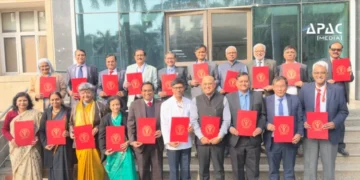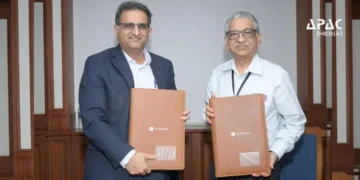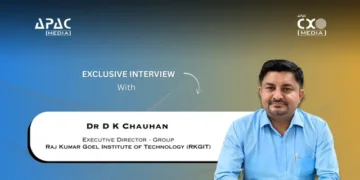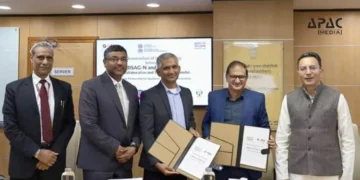New Delhi: India’s sports technology industry is projected to witness substantial growth, reaching 49,500 crore by FY29 from Rs 26,700 crore in FY24, at a compound annual growth rate (CAGR) of 13 per cent, according to a report released by the Federation of Indian Fantasy Sports (FIFS) in collaboration with Deloitte.
Titled ‘Beyond the Field: India’s Sports Tech Revolution’, the report highlights the rapid evolution of sports technology, driven primarily by fan engagement, sports data & analytics, and foundational technologies.
Breakdown of the Sports-Tech Ecosystem
The sports-tech sector comprises three key sub-sectors:
- Fan Engagement: This includes fantasy sports, ticketing services, and sports gaming, offering fans an immersive experience with their favourite teams and athletes.
- Sports Data & Analytics: Covering performance-enhancing solutions such as wearables and data providers, this segment aids athletes, teams, and businesses in strategic decision-making.
- Foundational Technologies: The backbone of the industry, includes advancements in cloud computing, 5G, IoT, digital payments, and social media platforms that enhance the overall sports ecosystem.
Fantasy Sports Faces Slowdown Amid GST Reforms
Fantasy Sports (FS), a major component of the fan engagement sector, emerged as the largest contributor to India’s sports-tech industry, generating Rs 9,100 crore in FY24.
However, the industry is poised for a decline due to changes in Goods and Services Tax (GST) regulations. The report estimates a 10 per cent contraction in the FS market in FY25, with a reduced CAGR of 7 per cent from FY24 to FY29, a stark contrast to the previously projected 30 per cent CAGR for FY22 to FY27.
The decline is largely attributed to the substantial financial burden imposed by GST reforms, slashing company margins by approximately 50 per cent as businesses absorb the tax impact.
Additionally, concerns over retrospective taxation have deterred investor confidence, with sectoral investments plummeting by 90 per cent in 2023 and no new funding secured in 2024.
Call for Policy Support
At the report’s launch event, FIFS Director General Joy Bhattacharjya emphasized the transformative potential of sports technology, stating, “The industry has the power to elevate sports experiences, improve athlete performance, and make sports a mass movement in India.
However, the Fantasy Sports sector now faces regulatory uncertainty, making it essential for India to adopt a progressive policy framework that encourages innovation while ensuring responsible gaming practices.”
Prashanth Rao, Partner at Deloitte India, echoed these sentiments, highlighting the broader impact of sports technology on employment and economic growth.
He noted that the industry could generate 17,500 new jobs by FY27 but stressed the importance of a stable regulatory framework to sustain momentum.
“While initiatives like the Draft National Sports Policy 2024 are a step in the right direction, long-term policy stability and fostering sports-tech startups will be crucial for positioning India as a global sporting powerhouse,” he added.
Government’s Role in Shaping the Future
The Indian government’s Draft National Sports Policy 2024 underscores its commitment to strengthening the sports ecosystem from the grassroots to the national level. By leveraging sports technology, policymakers aim to enhance athlete training, fan engagement, and infrastructure development.
The integration of data-driven decision-making, gaming innovations, and advanced analytics is expected to accelerate India’s emergence as a dominant force in global sports.
As the industry navigates regulatory challenges, the focus remains on creating a conducive environment for sustainable growth. A balanced tax regime, clear policy guidelines, and investment-friendly regulations will be instrumental in ensuring India’s sports-tech sector realizes its full potential in the coming years.
Also read –
Deloitte India, MEGA Partner to Streamline Enterprise Architecture





































































Discussion about this post